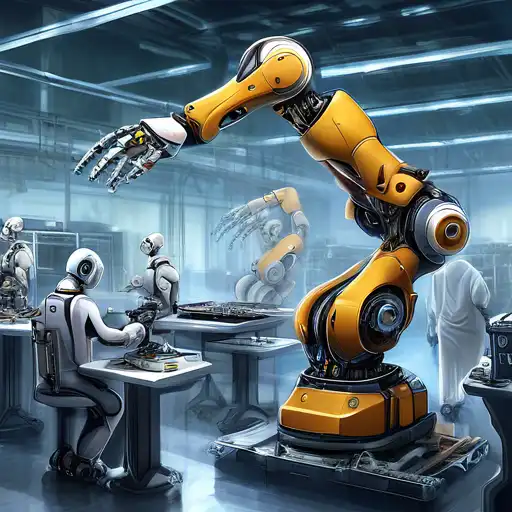The Revolutionary Impact of Robotics on Modern Manufacturing
In the heart of the industrial revolution, the introduction of robotics into manufacturing processes has marked a pivotal shift in how products are designed, produced, and delivered. This transformation is not just about automating repetitive tasks but redefining efficiency, precision, and scalability in manufacturing sectors worldwide.
Enhancing Efficiency and Productivity
Robotics technology has significantly increased production rates by performing tasks faster and more accurately than human workers. Automated robots can work 24/7 without fatigue, ensuring continuous production lines and meeting the growing demands of global markets.
Improving Quality and Precision
With advanced sensors and programming, robots achieve unparalleled precision in manufacturing. This reduces errors and waste, ensuring high-quality products that meet strict industry standards and customer expectations.
Reducing Operational Costs
Although the initial investment in robotics can be substantial, the long-term savings are undeniable. Robots reduce labor costs, minimize waste, and lower the risk of workplace injuries, contributing to a more cost-effective manufacturing process.
Facilitating Customization and Flexibility
Modern robotics systems are designed for flexibility, allowing manufacturers to easily reprogram robots for different tasks. This adaptability supports the trend towards mass customization, where products can be tailored to individual customer preferences without significant downtime or retooling costs.
Driving Innovation and Competitive Advantage
Companies that integrate robotics into their manufacturing processes gain a competitive edge. By leveraging cutting-edge technology, they can innovate faster, respond to market changes more swiftly, and offer superior products and services.
As we look to the future, the role of robotics in manufacturing is set to expand even further. With advancements in artificial intelligence and machine learning, robots will become more autonomous, capable of making decisions and learning from their environment to optimize manufacturing processes.
For businesses looking to stay ahead in the competitive manufacturing landscape, embracing robotics is not just an option—it's a necessity. The transformation brought about by robotics is not merely changing how we manufacture; it's reshaping the very foundation of the industry.
Explore more about the future of manufacturing and how automation is paving the way for unprecedented growth and innovation.
